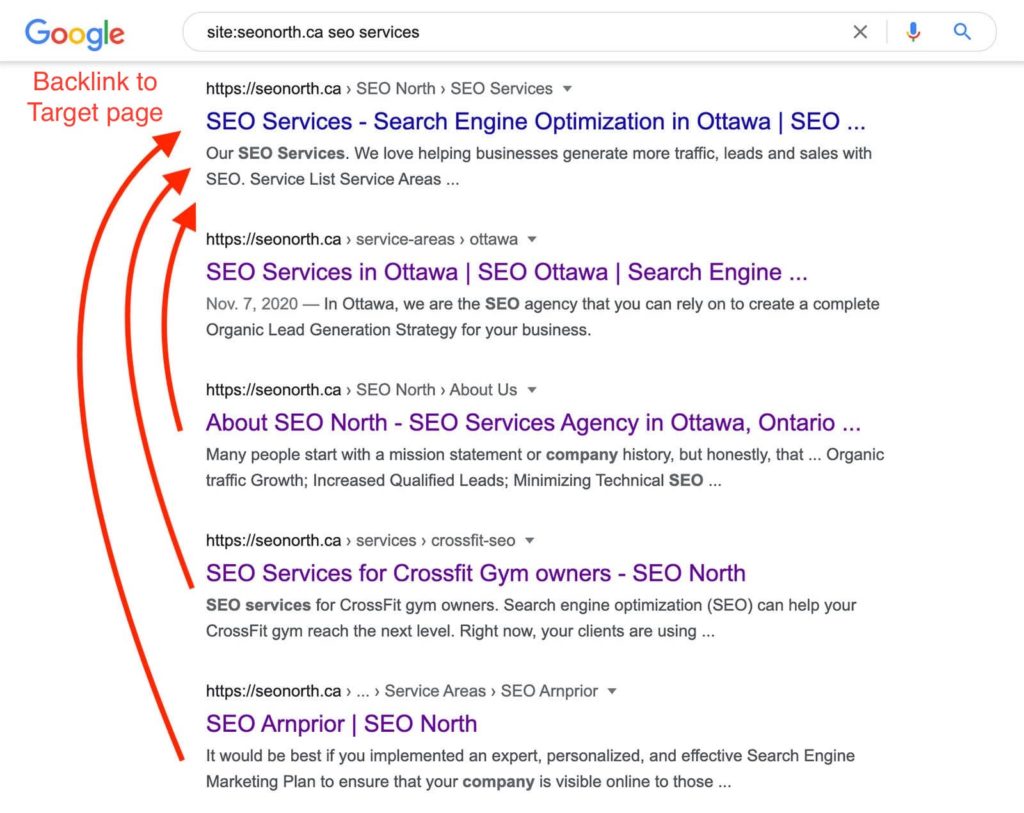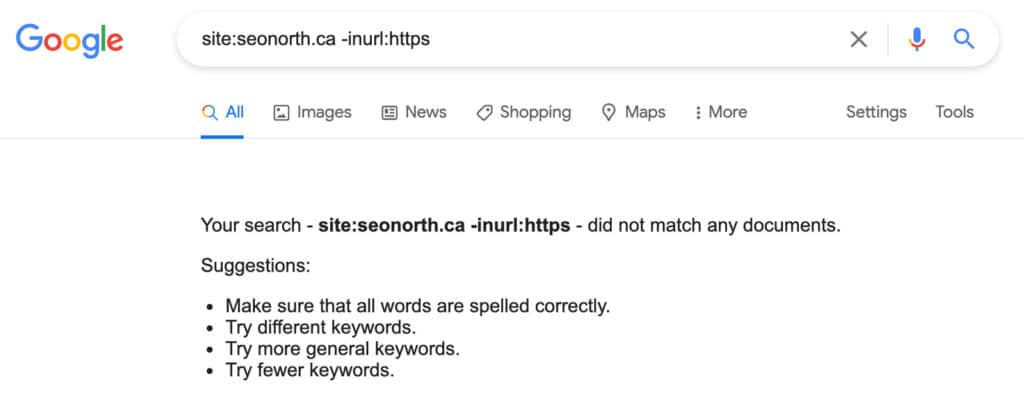Google Search Operators are a potent tool for SEO and keyword research. They can be used to determine how many people are searching for a specific term, what the top-ranking pages are on Google, or even how competitive a particular search term is. This article will provide you with a complete list of all search operators that Google offers in their advanced search section so that you can use them more effectively!

Google search operators are a set of commands you can use to customize the Google search results. These commands help refine your searches and make it possible to find more accurate information on specific topics. Here’s a complete list of all Google search operators and their functionality!
Table of Contents
Google Search Operator Cheat Sheet
| Search Term | Notes | Examples |
|---|---|---|
| “search term” | Wrapping words within quotation marks helps narrow your search to a specific fraise. | “SEO” |
| OR | Using OR in the search bar will return results related to one OR the other, OR both. | SEO OR SEM SEO | SEM |
| AND | AND will return results related to both search terms. This is really only used with other search operators since Google uses this by default. | SEO AND SEM |
| – | A hyphen will exclude a term or phrase. In this example, search results will show SEO, but NOT SEM in the results. | SEO ‑SEM |
| * | An asterisk is a wildcard search and will match any word or phrase. | SEO * SEM |
| ( ) | Round brackets are used to group multiple terms or search operators to control how the search is executed. | (SEO OR SEM) digital |
| $ | A dollar sign can be used to search for prices. It also works for Euro (€), but not GBP (£). | SEO Audit $150 |
| define: | Define will display the meaning of a word, similar to a dictionary result. | define:startup |
| cache: | Cache search returns the most recent cached version of a web page (providing the page is indexed). | cache:seonorth.ca |
| filetype: | Filetype restricts results to a specific filetype. E.g., PDF, DOCX, TXT, PPT, etc. | SEO filetype:pdf |
| site: | Site search limits search results to a specific website. | site:seonorth.ca |
| related: | Related finds sites related to a given domain. | related:seonorth.ca |
| intitle: | Intitle finds pages with a specific word (or words) in the title. | seonorth.ca intitle:SEO |
| allintitle: | Similar to “intitle,” only results containing all of the specified words in the title tag will be shown. | seonorth.ca allintitle:SEO north |
| inurl: | Find pages with a specific word (or words) in the URL. For this example, any results containing the word “SEO” in the URL will be shown. | seonorth.ca inurl:SEO |
| allinurl: | Similar to “inurl,” only results containing all of the specified words in the URL will be returned. | seonorth.ca allinurl:SEO north |
| intext: | Find pages containing a certain word (or words) somewhere in the content. Any results containing the word “SEO” in the page content will be returned. | seonorth.ca intext:SEO |
| allintext: | Similar to “intext,” only results containing all of the specified words somewhere on the page will be returned. | seonorth.ca allintext:SEO north |
| AROUND(X) | This is a proximity search to find pages containing two words or phrases within X words of each other. E.g., the words “SEO” and “north” must be present in the content and no further than four words apart. | SEO AROUND(4) north |
| weather: | Use the operator “weather” to search for specific geographic locations. | weather:Ottawa Ontario |
| stocks: | Stock information, such as price and info, for a specific company. | stocks:semr |
| map: | Force Google to show map results for a locational search. | map:Ottawa |
| movie: | Find information about a specific movie. This also finds movie showtimes if the movie is currently showing near you. | movie:hackers |
| source: | Find news results from a certain source in Google News. | SEO source:CNN |
| inanchor: | Find pages that are being linked to with specific words. | inanchor:SEO marketing |
| allinanchor: | Similar to “inanchor,” but only results containing all of the specified words in the inbound anchor text. | allinanchor:SEO marketing |
Actionable Ways to Use Google Search Operators
Google search operators are often overlooked tools that can make a dramatic difference in finding the right information. They’re also one of Google’s best-kept secrets, so you’ll want to use them as much as possible. In this post, we’ll cover some of the most popular Google search operators and how to use them.
Finding internal linking opportunities.
To increase PageRank, it helps to add Internal links to cornerstone content. To find the best pages to add links to, you can perform a site: search + keyword.
The search results show what Google believes is the closest match.
All you need to do is open the best search result listings in a new tab and exclude the targeted backlink page.
e.g., I want to add internal links to my SEO Services page. So I searched:
site:seonorth.ca SEO servicesand excluded the targeted services page and added links to the other pages.

Finding SERP errors
The first Google search operator you can use is the site: command. This will only display results from a particular site and not the entire internet.
Google displays SERPs in the order of importance. Is there anything missing from the first page? Do you have articles that shouldn’t be showing up? This also gives you a chance to view how your results look on Google. Would you click on your own listing if it wasn’t yours, to begin with? Having an outside perspective helps you optimize your SEO.
e.g.,
site:seonorth.caThe analytics title seems very short and unengaging.

Finding unwanted pages and files.
In this step, you can locate non-SSL pages, old PDFs or DOCX files, staging servers, even placeholder text, all things you might not want in your SERPs.
e.g.,
site:seonorth.ca -inurl:https
site:seonorth.ca inurl:staging
site:seonorth.ca filetype:pdf
site:seonorth.ca "lorem ipsum"
Finding guest post opportunities.
Guest post opportunities are great for anyone looking to gain exposure.
This advance search allows you to find opportunities without paying someone to find them for you.
Even if your site isn’t specifically in a niche market, there’s always someone that might be interested in publishing an article on behalf of your company. Just make sure to read their guidelines before submitting anything!
e.g.,
"write for us"
"become a contributor"
"contribute to"
"write for me"
"guest post guidelines"
inurl:guest-post
inurl:guest-contributor-guidelinesOr add a pipe to search for multiple things at once:
SEO ( “write for us” | inurl:guest-post | “become a contributor" )Finding resource page opportunities.
Webmasters will sometimes add backlinks to your resources page, which can be great for SEO.
Look for opportunities to contribute a resource page on your website; this is one of the best ways you could potentially rank higher in Google search results!
e.g.,
SEO (intitle:"resources" | inurl:resources)Have we missed anything? If so, please tweet @ us to have it added to the list!
FAQ
What are Google Search Operators?
How do you exclude a domain in google search?
Published on: 2021-05-18
Updated on: 2024-09-16